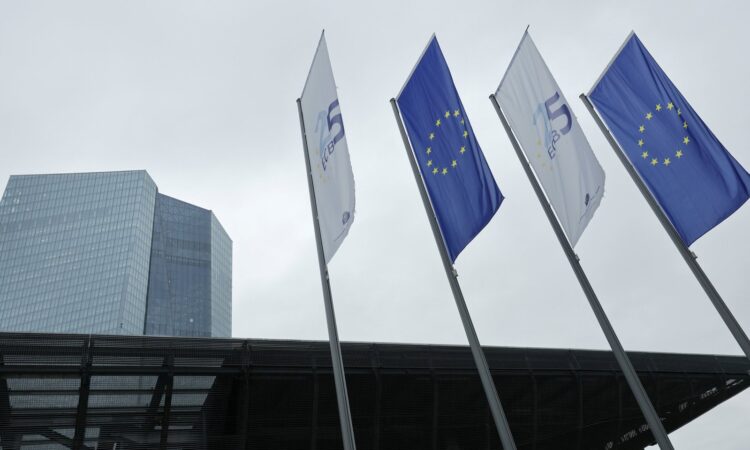
In 2023, Western economies outperformed predictions, providing a ray of hope amid a turbulent global environment.
Nevertheless, the outlook optimism is moderated by ongoing uncertainties, as experts warn challenges persist, especially concerning inflation and the European cost-of-living crisis, suggesting that the most challenging times may still lie ahead.
The European economy has encountered headwinds this year, grappling with a high cost of living, weak external demand, and monetary tightening, leading to a notable loss of growth momentum.
As interest rates stubbornly hold their ground, remaining “higher, for longer,” concerns are mounting over the potential pain this could inflict on companies and consumers alike.
One of the critical questions echoing through financial corridors is whether the worst is behind Europe on inflation and the cost-of-living crisis.
“Inflation in the region has been primarily driven by increased energy costs and subsequently, rising food prices. November brought some relief as inflation unexpectedly dropped to 2.4%, marking the lowest point in over two years,” according to Cevat Giray Aksoy of King’s College London, who also serves as associate director of research at the European Bank for Reconstruction and Development (EBRD).
However, Aksoy added, this decline is attributed to a decrease in energy prices, partially offset by the continuous upward trend in food prices.
“Despite this relief, the cost of living in real terms remains nearly 20% higher than the pre-inflation surge levels of three years ago. It seems premature to declare an end to the cost-of-living crisis,” he underlined.
“Looking ahead to the first half of 2024, economic activity weakness could further accelerate the decline in inflation. This will mean that monetary policy will remain tight for a relatively short period. I anticipate that this could prompt the European Central Bank (ECB) to consider a reduction in interest rates as early as the first half of next year,” he underlined.
Early to claim triumph over inflation
During an event by the Economic and Social Research Institute (ESRI), Philip Lane, chief economist of the ECB, also cautioned that it is early to declare inflation beaten.
Anticipating a surge in headline inflation throughout the euro area in December, he foresees it persisting above the ECB’s 2% target throughout 2024.
Lane acknowledged that while the energy price shock and post-coronavirus bottlenecks are in the past, the continuous rise in wages, particularly in the services sector, remains a significant factor.
He emphasized that despite some positive indicators, the ongoing growth in wages and the absence of uniform disinflation in the services industry suggest that it is not yet time to declare victory over inflation. Looking ahead to the ECB’s upcoming rate-setting meeting in January, Lane emphasized the need for a cautious approach.
Throughout the year, the ECB directed its attention toward tackling the most elevated levels of inflation observed in four decades, primarily through the implementation of stringent monetary policy measures.
In a recent speech, ECB President Christine Lagarde also posed the question, “Should we lower our guard?”
“We contemplate that query. The answer is a resounding no. We absolutely should not lower our guard,” she said.
Despite feeble macroeconomic prospects, European banks face ongoing risks due to more restrictive financing conditions.
While the swift rise in interest rates has initially enhanced overall profitability for banks, this positive impact is expected to wane as higher interest rates are transferred to depositors, according to the ECB.
According to the European Commission’s Autumn Forecast, following robust expansion throughout most of 2022, real gross domestic product (GDP) contracted towards the end of 2023 after barely growing at all in the first three quarters of the year.
“Still high, though declining, inflation, and tightening monetary policy took a heavier toll than previously expected, alongside weak external demand,” the report said.
The Autumn Forecast revises down the EU GDP growth projections for 2023 to 0.6% for both the bloc itself and the euro area, reflecting a 0.2 percentage point reduction from the commission’s summer estimates. However, despite these challenges, the report suggests that economic activity is poised to gradually recover.
While some positive indicators have emerged, the EU economy grapples with persistent challenges, pushing policymakers to adopt a cautious stance in the face of ongoing uncertainties. The specter of inflation and the cost-of-living crisis looms large, demanding a delicate balance between economic recovery and prudent monetary measures.






